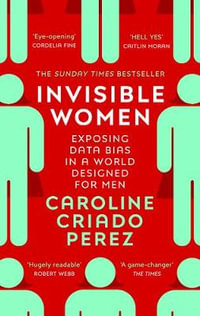
Misconceiving Mothers
Legislators, Prosecutors, and the Politics of Prenatal Drug Exposure
By: Laura E. Gomez
Hardcover | 31 January 1997
At a Glance
Hardcover
$128.40
Aims to ship in 15 to 25 business days
ISBN: 9781566395571
ISBN-10: 1566395577
Series: Gender Family and the Law
Published: 31st January 1997
Format: Hardcover
Language: English
Number of Pages: 207
Audience: Professional and Scholarly
Publisher: TEMPLE UNIV PR
Country of Publication: US
Dimensions (cm): 38.71 x 38.71 x 56.46
Weight (kg): 0.39
Shipping
| Standard Shipping | Express Shipping | |
|---|---|---|
| Metro postcodes: | $9.99 | $14.95 |
| Regional postcodes: | $9.99 | $14.95 |
| Rural postcodes: | $9.99 | $14.95 |
How to return your order
At Booktopia, we offer hassle-free returns in accordance with our returns policy. If you wish to return an item, please get in touch with Booktopia Customer Care.
Additional postage charges may be applicable.
Defective items
If there is a problem with any of the items received for your order then the Booktopia Customer Care team is ready to assist you.
For more info please visit our Help Centre.
You Can Find This Book In
This product is categorised by
- Non-FictionLawLaws of Specific JurisdictionsFamily Law
- Non-FictionMedicineClinical & Internal MedicineGynaecology & Obstetrics
- Non-FictionFamily & HealthParenting: Advice & IssuesPregnancy, Birth & Baby Care
- Non-FictionMedicineOther Branches of MedicineTherapy & TherapeuticsAddiction & Therapy
- Non-FictionSocial Services & WelfareSocial Welfare & Social ServicesEmergency ServicesPolice & Security Services
- Non-FictionSociety & CultureSocial Issues & ProcessesSocial Aspects of Illness & AddictionsSocial Aspects of Drug & Substance Abuse
- Non-FictionHistorySpecific Events & Topics in HistorySocial & Cultural History
- Non-FictionSocial Services & WelfareCrime & Criminology
- Non-FictionSociety & CultureSocial GroupsGender StudiesGender Studies: Women and Girls
- Non-FictionLawLaws of Specific JurisdictionsCriminal Law & Procedure
- Non-FictionFamily & HealthCoping with / Advice about Personal, Social & Health TopicsCoping with Drug & Alcohol Abuse























